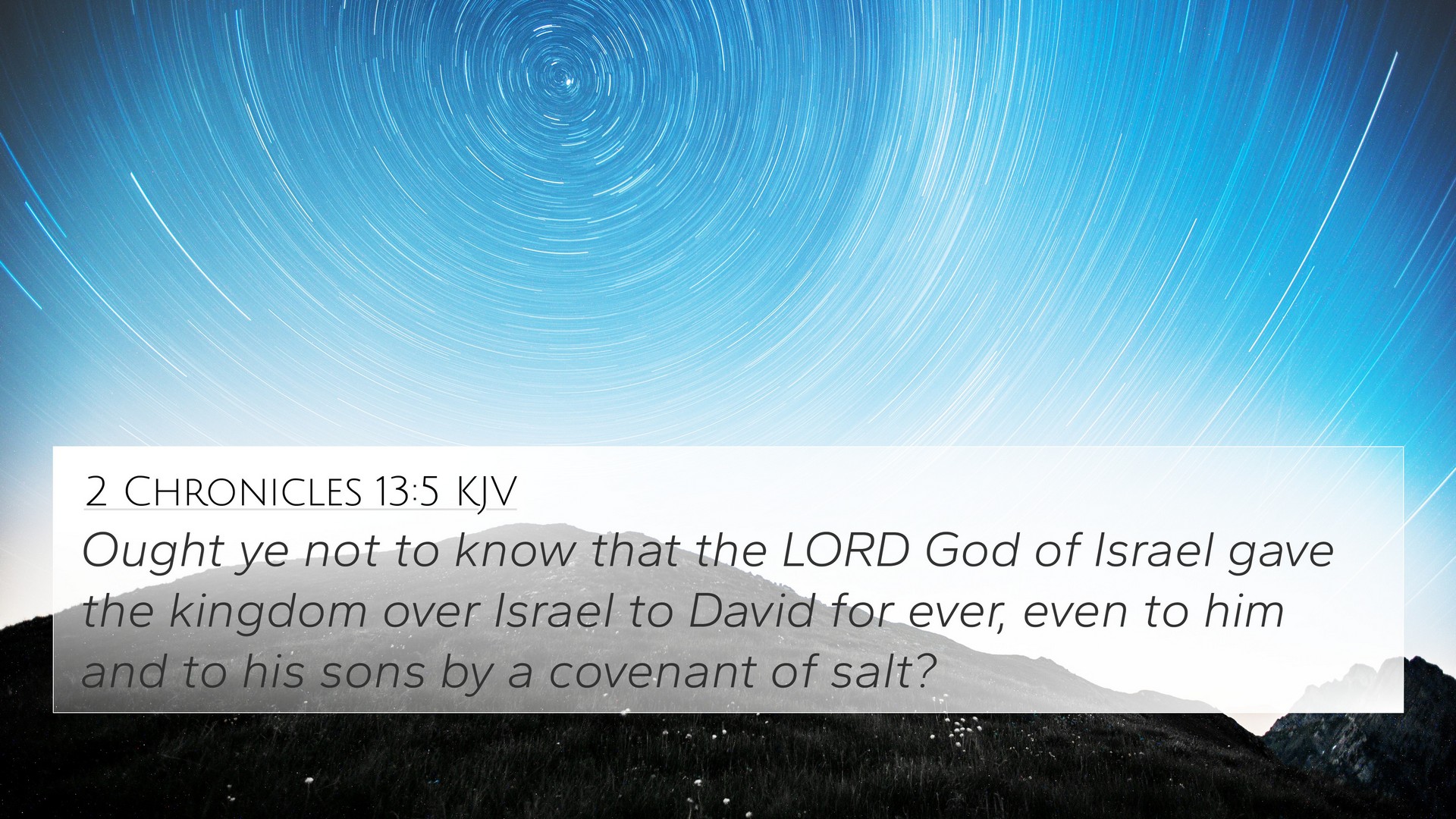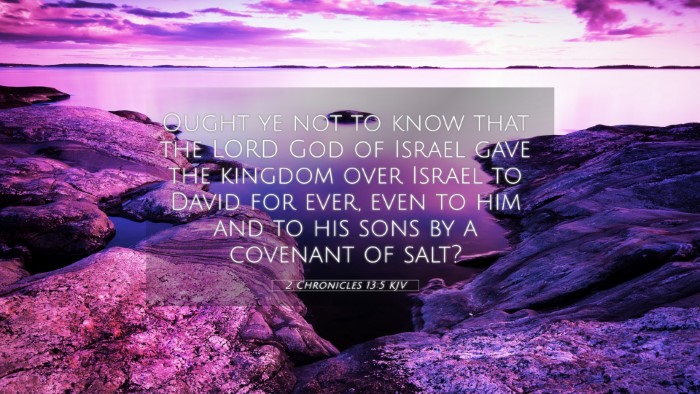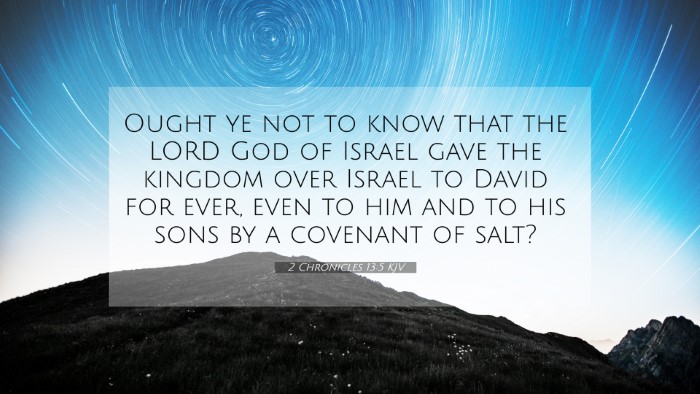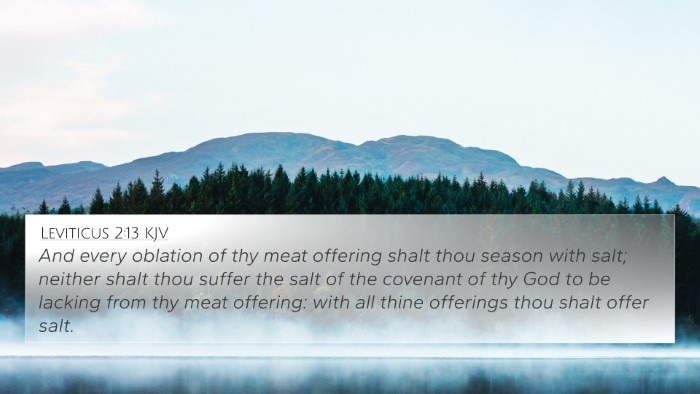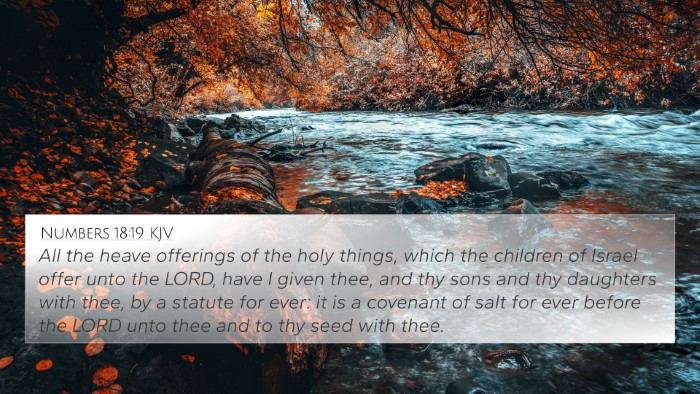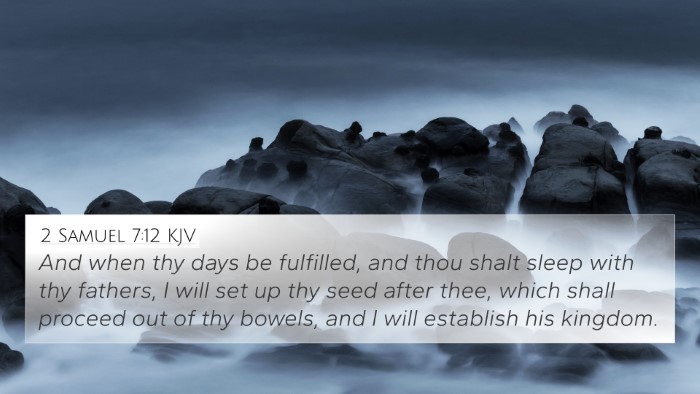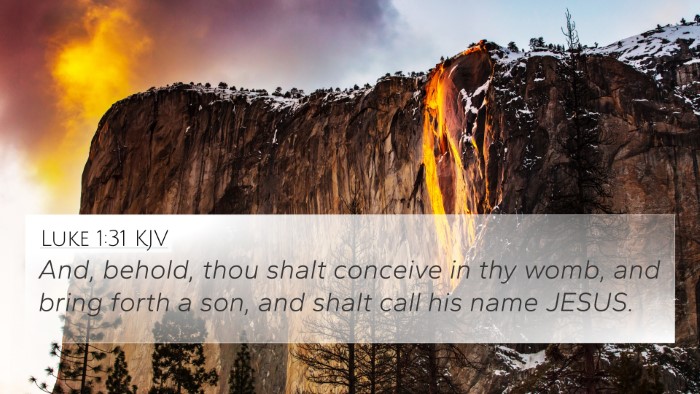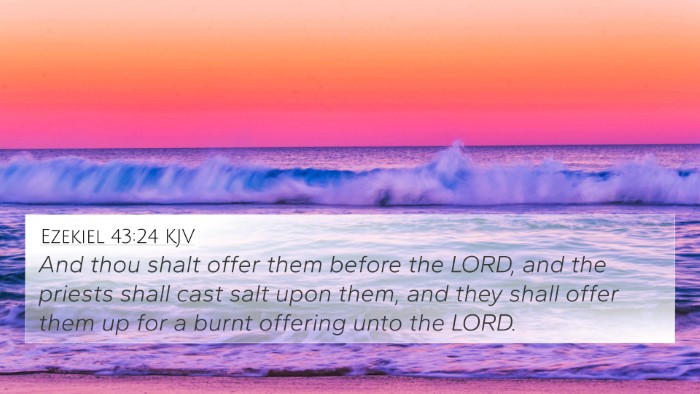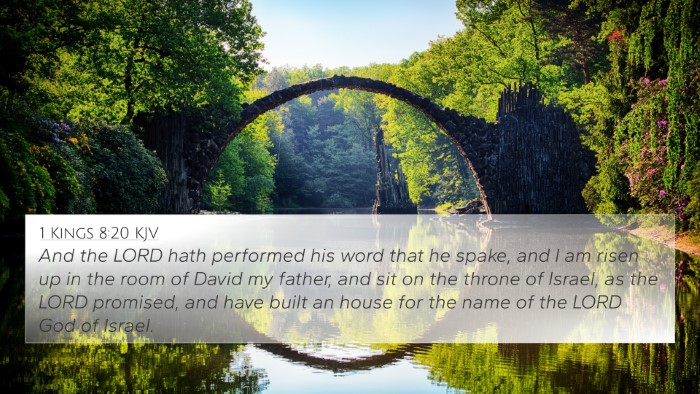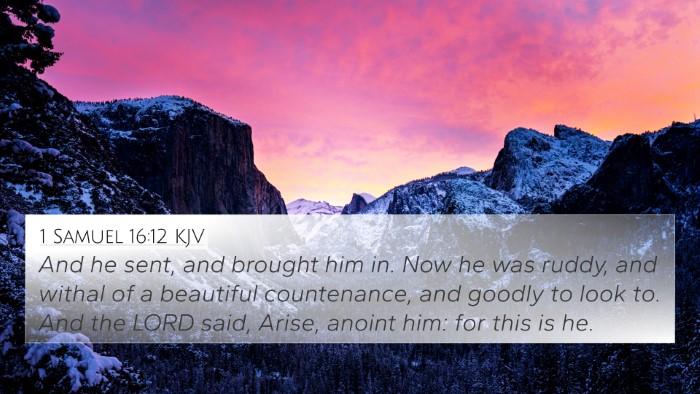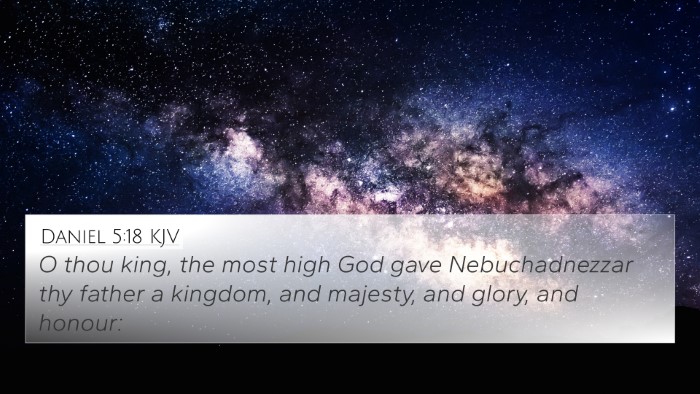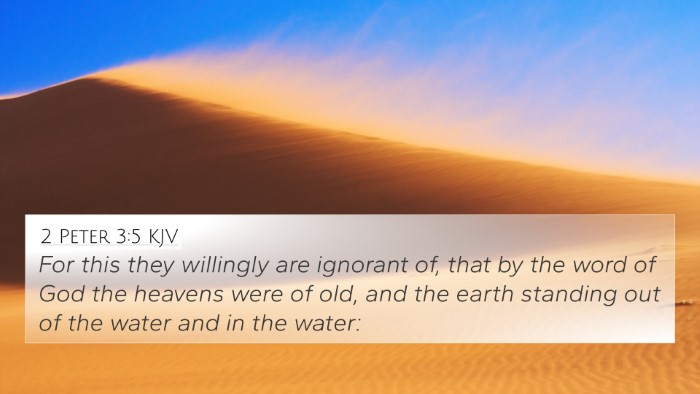Understanding 2 Chronicles 13:5
2 Chronicles 13:5 states: "Ought ye not to know that the Lord God of Israel gave the kingdom over Israel to David for ever, even to him and to his sons by a covenant of salt?" This verse highlights the covenant made by God with David, emphasizing the divine right to the kingdom.
Key Themes and Insights
The themes present in this verse include the notion of divine sovereignty, the permanence of God's promises, and the importance of covenant relationships.
Divine Sovereignty
Matthew Henry comments on the assertion of God’s authority over Israel's monarchy, showcasing that the rulership stems from God's will and divine appointment. Albert Barnes further emphasizes that God's selection of David was not arbitrary; it was a deliberate plan for Israel's leadership. Adam Clarke notes how David's fidelity to God was rewarded through this covenant, reflecting the principle that the Lord grants authority to those who are faithful.
Perpetuity of God's Promises
The phrase "covenant of salt" is interpreted by Matthew Henry as symbolizing the durability and earnestness of God’s promises. Salt, a preservative, denotes the lasting nature of this covenant. Clarke augments this by explaining how such a covenant signifies an unbreakable and divine commitment. This reinforces the theological concept of God’s unchanging nature and steadfastness toward His people.
The Role of Covenant Relationships
Covenants in the Biblical context serve as pivotal moments between God and humanity. This particular covenant indicates not just a singular promise of kingship but establishes a familial line—underscoring the importance of loyalty and lineage in the Davidic covenant. This point resonates through the teachings of Henry and Clarke, who discuss the ramifications of this covenant throughout Israel’s history and its theological implications for later generations.
Cross-References
- 1 Samuel 16:12-13: God’s anointing of David as king.
- 2 Samuel 7:16: God’s promise of David's dynasty enduring forever.
- Psalm 89:3-4: Acknowledgment of God’s covenant with David.
- 2 Chronicles 21:7: God’s inability to destroy the line of David for His covenant's sake.
- Luke 1:32-33: The promise of Jesus' eternal kingdom linked to David.
- Revelation 3:7: The keys to the kingdom tied to the authority given to Jesus.
- Hebrews 7:14: Connection of Jesus to the line of Judah, fulfilling the Davidic lineage.
- Matthew 1:1: Genealogy of Jesus as the son of David.
- Romans 1:3: The gospel concerning God’s Son, born of David according to the flesh.
- Jeremiah 33:20-21: God's promise that David will always have a descendant on the throne.
Bible Verse Relationships
To fully grasp the significance of 2 Chronicles 13:5, it's beneficial to examine how it connects with other verses, illustrating a robust theological framework that spans both the Old and New Testaments. This inter-Biblical dialogue reveals the consistency of God's character and His covenants throughout scripture.
Connections to New Testament
As Christians believe, the fulfillment of the Davidic covenant is seen in the person of Jesus Christ. The New Testament echoes this, linking the kingship of David to Christ's mission and authority. Cross-referencing these themes can deepen one’s understanding of Biblical authority and the continuity of God's redemptive plan.
Tools for Bible Cross-Referencing
For those seeking to explore these connections further, utilizing a Bible concordance, accompanied by Bible cross-reference guides, can help in identifying relevant scripture relationships. This method not only enhances one's study but also enriches their comprehension of God’s covenants.
How to Use Bible Cross-References
Understanding how to use Bible cross-references is essential for anyone delving into comparative Bible verse analysis. By studying the parallels between verses like 2 Chronicles 13:5 and its associated texts, readers can unearth profound truths about God's enduring promises and their implications for faith today.
